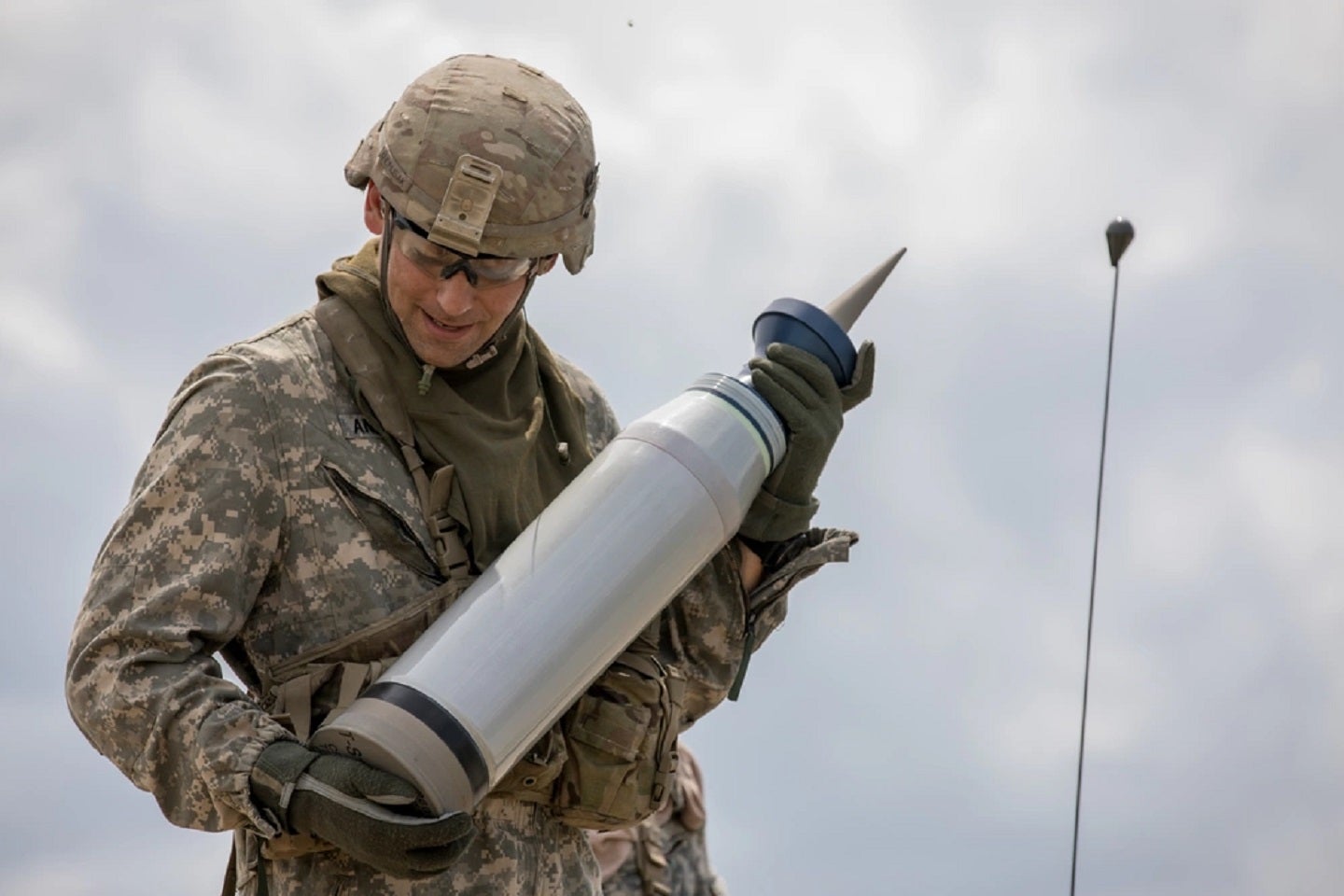
Aerojet Rocketdyne’s metal specialist subsidiary, Aerojet Ordnance Tennessee (AOT), has been awarded a multi-year, indefinite delivery, indefinite quantity contract worth up to $75m.
The company will provide the US Army with M829A4 120mm kinetic energy rounds, which are specifically designed for the M1 Abrams main battle tanks (MBTs).
These rounds are the latest type of ammunition to be used by the American-made Abrams. It is the materiel solution for the Abrams’ lethality capability gap against threat vehicles equipped with third-generation explosive reactive armour.
This flight projectile includes a low-drag fin with a tracer, windshield and tip assembly. The latest feature to the M829A4, compared with previous cartidges, is the ammunition data link (ADL) on the base of the cartridge. This functions as an interface between the Abrams’ fire-control system and the M829A4. The ADL enables the Abrams’ fire control system to send information to the M829A4.
Aerojet Rocketdyne’s CEO and president Eileen Drake stated: “We are pleased to continue supporting the [US] Army with the cutting-edge, armour-piercing technology that protects our forces and keeps our adversaries on the defensive.
“In terms of precision and lethality, the M829A4 [main battle] tank round is second to none, which is what our brave men and women in uniform deserve.”
Supplying Ukraine’s counter-offensive
If we consider America’s national strategy at the moment, the Pentagon is focused on sustaining both its own ammunition stockpiles and that of the Ukrainian military, which is being expended at an alarming rate on the frontline against Russia.
Therefore, it may be reasonable to alter Drake’s comment to include US soldiers and their allies, keeping in mind Ukraine’s attritional war. The munitions will be useful in feeding Ukraine’s long-awaited counter-offensive since the costly Russian offensive last winter.
The AOT contract for an unlimited supply of Abrams projectiles comes just before America’s donation of Abrams MBTs are due to arrive in Germany in several weeks for Ukrainian soldiers to use for training.
Additionally, following the Post-Ukraine Defense Contact Group Conference on 21 April, US Defense Secretary Lloyd J. Austin confirmed that the US has “expedited our M1 Abrams timelines to supply Ukraine with more armoured capability in the coming months”.
Whether or not we accept the urgency in the recently leaked Pentagon documents – which predict the imminent depletion of Ukraine’s ammunition supplies – it is a given fact that the rate of consumption must be offset by a consistent source of munitions production. It is reasonable to believe that the US defence industrial base will fill this munitions gap.
In a bilateral meeting with Austin on 12 April, the Ukrainian Prime Minister Denys Shmyhal reiterated his desire to receive more Abrams MBTs, among many other platforms.
“We sincerely applaud the decision of the US to join the tank coalition and supplying us with Abrams tanks but also to provide Bradley and Stryker infantry fighting vehicles,” Shmyhal stated. “For our counter-attack to be successful, we require an increase in such supplies.”
Abrams sustainment
Austin goes further than his promise of platforms to wage the counter-offensive.
“[W]e know that combat is dynamic [and] complex… so we understand that we’re going to have to continue to sustain Ukraine’s efforts going forward when the fight starts and long after the fight continues.”
This includes training Ukrainian soldiers up to use the Abrams when they arrive in Germany. It also includes providing a reliable source of munitions, which explains the background behind the AOT contract.
The sentiments of Pentagon officials are high when picturing the effect an M1 Abrams can have on the battlefield, as the Chairman of the Joint Chiefs of Staff Mark Milley stated: “I think the M1 tank’s the best tank in the world… I do think the M1 tank, when it is delivered, will make a difference.”
Although the US and its allies display an encouraging commitment to supporting Ukraine’s military efforts, their over-preparedness may halt any potential progress. The longer they wait and prepare for a Ukrainian counter-offensive, the more difficult it will be to overcome the Russian forces who have dug themselves in across eastern Ukraine.



